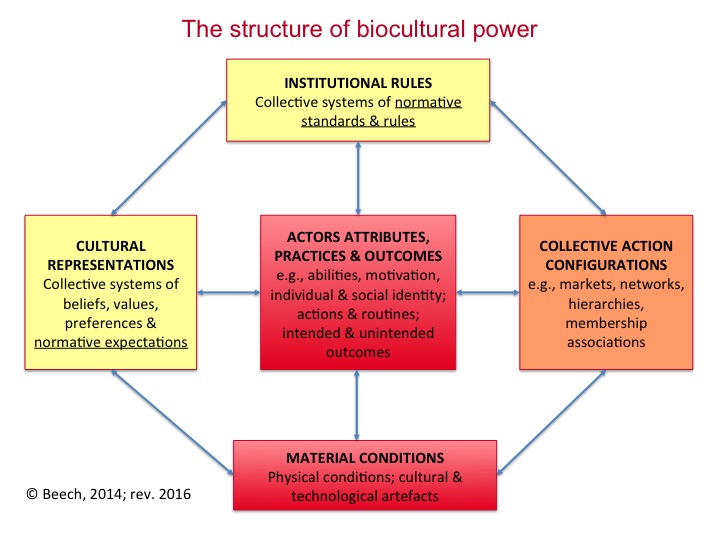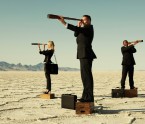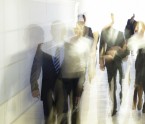In order to understand how human collective action is motivated, coordinated, governed and evolved an original framework of biocultural power is proposed. Biocultural power is the language enabled human capacity to produce, reproduce and evolve the cultural representations and institutional rules that constitute and regulate the capacity to choose to do things together that could not be done alone.
This paper proposes that biocultural power involves interactions between a range of interdependent and interpenetrating components that can be grouped into five broad categories: human actors and their attributes practices and outcomes; material conditions and artefacts; interaction configurations; institutional rules; cultural representations. As with other animals interaction among humans produces interaction configurations and game equilibria. Perhaps unique to human beings interaction produces first, joint intentionality and second, and decisively, collective intentionality and cultural representations (Tomasello, 2014).
As argued by Searle (1995; 2010), with supporting empirical evidence from Tomasello, the constitutive and regulative rules of language are the foundational institution of the human species. Institutions are evolving systems of established rules that enable and constrain human life, e.g., language and marriage.
The meaning of language is created – meaning is constituted – through the collective intentionality and cultural representations of human beings and enables the creation of new institutions. For example, the institution of marriage is constituted via language, initially sanctioning a relationship – interactive practices – between a woman and a man, governed by community laws. And laws are constituted by collective intentionality and associated cultural representations. Changes in cultural representations about the meaning of marriage have resulted in changes in institutional rules constituting and regulating marriage in some polities, enabling the preferences and interactive practices of two adults of the same gender to be accorded the status of marriage. Thus, the proposed framework supports conceptualisation of institutions as constitutive and as regulative rules, and goes beyond Hindricks and Guala’s (2015) conceptualisation of institutions as rules-in-equilibrium.
About the author
David Beech
Co-founder, Director of Learning and Development
DPhil, CPsychol, AFBPsS
David co-founded Cambridge Leadership Development and is the Director of Learning and Development. He specialises in leadership and organization development, his focus is designing, developing and delivering a broad spectrum of customised and open leadership and management development programmes, for a wide range of clients.
David has worked across industries and engagements throughout Europe, the US, and Asia. Current and recent clients include Bayer, Saint-Gobain, BBC, Glaxo-Wellcome, Ecolab, EMLYON Business School, Novartis, NHS, Cranfield School of Management, L’Oreal and Oracle.
Prior to founding Cambridge Leadership Development in 2003, David was Client and Programme Director for Leadership and Organization Behaviour at Ashridge Business School, where he was a main contributor to the design, development and delivery of the Ashridge Leadership Process; as Principal Consultant in Organizational Effectiveness at Hewitt Associates, he focused on culture change projects in Europe and the USA; and at SHL, he designed and delivered Assessment and Development Centres for all levels of management from the boardroom to the frontline. David held managerial and executive roles in Organization Development and HR Management with Unilever, Siemens, Duracell, and Nashua. He has 25 years international experience.
He holds a DPhil in Social Psychology from the University of Sussex, an MSc in Organizational Behaviour from the University of London, and a BSc in Philosophy, Psychology and Sociology, and is an organizational psychologist.
David is an Associate Fellow of the British Psychological Society, and a qualified psychometric assessor in a range of tools, including OPQ, 16PF, California Personality Inventory, Myers Briggs, FIRO-B, TMSDI team profiling, Belbin, and CCL’s Benchmarks 360.
About Cambridge Leadership Development
We are a specialist leadership development company. Cambridge Leadership Development combines deep specialist expertise and knowledge in leadership and development with broad industry experience.
We work in true partnership with our clients to develop existing and emerging leaders at every level, to improve effectiveness and performance, for organizational and individual success.
We are passionate about developing the leaders our clients need to compete successfully in today’s fiercely competitive business environment that changes round the clock, around the world.
Cambridge Leadership Development design, develop and deliver leadership and development solutions and services that develop the leaders each client needs to compete and grow.
Our Approach
Our approach is practically focused and connects business strategy with daily work. We offer a broad range of leadership and development services, including experiential programmes and workshops, client specific action learning projects, development centres and processes, competency frameworks and 360s, and coaching.
For more information about how Cambridge Leadership Development can help your business, please contact:
Angela Sherrington +44 (0) 1945 429 278 asherrington@camlead.com






